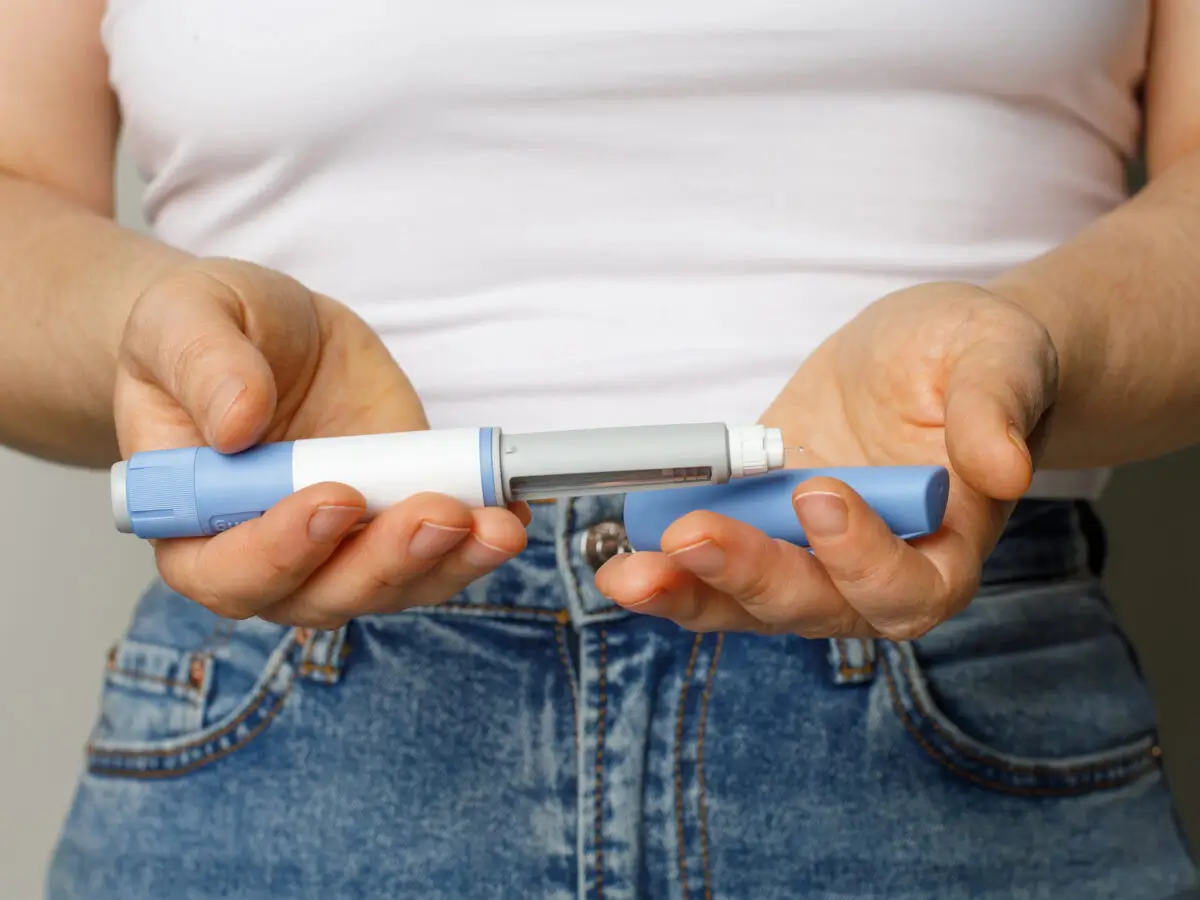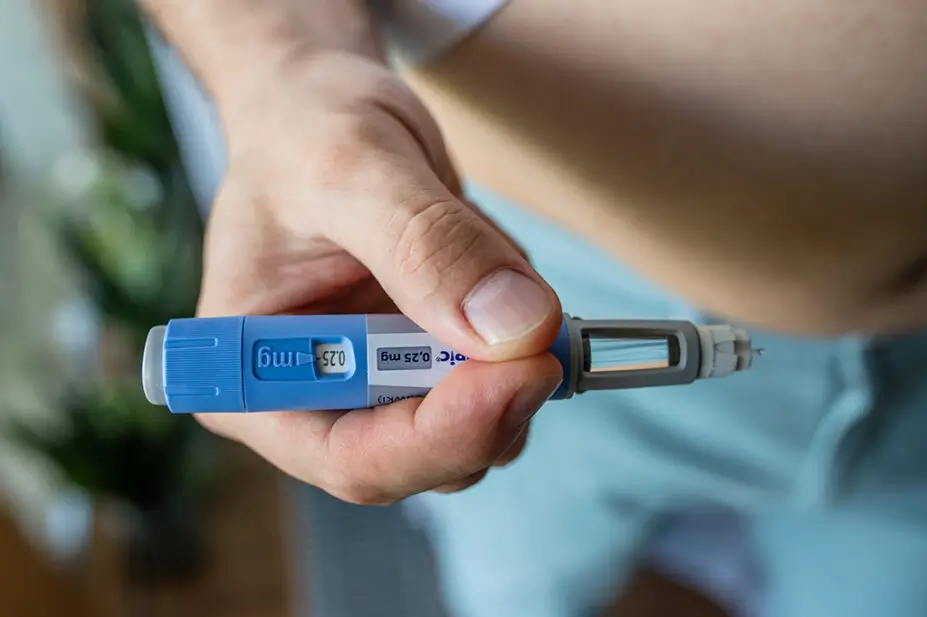
If you’re taking Ozempic or considering it, you might be wondering about more than just weight loss or blood sugar control. Some may even wonder whether it could actually make you feel more energized. After all, better health often goes hand-in-hand with improved energy, focus, and overall vitality.
Ozempic (semaglutide) is best known for its powerful effects on type 2 diabetes management and weight reduction, both backed by substantial clinical research. But many people using the medication have also noticed something else: they feel more awake, active, or mentally alert. This has led to growing interest in the question: Does Ozempic give you energy, or is there something else going on?
In this article, we’ll explore whether Ozempic directly improves energy levels, how it might influence fatigue or alertness, and the different factors like weight loss, blood sugar stability, and lifestyle changes that may shape how energized you feel while on the drug.
Key Takeaways
- Ozempic (semaglutide) is not a stimulant, but its metabolic benefits, including better blood sugar control and weight loss, can indirectly support improved energy levels in some users.
- Stabilized blood glucose helps reduce fatigue caused by sugar highs and crashes, promoting more consistent energy throughout the day.
- Weight loss and appetite control may improve physical stamina and reduce the effort needed for daily tasks, but results vary widely between individuals.
- While some users report feeling more energetic, others may experience temporary fatigue as their body adjusts to the medication.
- Fatigue is uncommon in clinical trials (under 1%) but may be more frequently reported in real-world use, especially during the early weeks of treatment.
- Pre-existing conditions or nutritional gaps from reduced food intake could also contribute to low energy; in these cases, medical review is essential.
About: Doctor Medica is your trusted supplier of top-quality dermal fillers, viscosupplements, and more for your medical practice. We offer genuine products from leading brands at the lowest prices in the market. If you’re looking to order Ozempic online for your practice, contact Doctor Medica today.
Ozempic’s Mechanism of Action and Metabolic Effects

Ozempic mimics a natural hormone called GLP-1 (glucagon-like peptide-1). This hormone helps regulate insulin secretion, blood sugar levels, appetite, and gastric emptying. Instead of acting like a stimulant (e.g., caffeine), Ozempic’s potential energy-enhancing effects come from its metabolic support.
- Improved glucose control helps some people avoid the energy dips linked to blood sugar spikes and crashes.
- By promoting weight loss and reducing appetite, Ozempic may help patients feel lighter, which can translate into better mobility and a willingness to be more active.
- Although not proven as a direct mechanism, improvements in metabolic health may help sustain energy across the day for some individuals.
It’s important to frame these effects accurately: Ozempic may help maintain more consistent energy levels in some patients. Still, it does not work like a stimulant, and results are highly individual.
Does Ozempic Give You Energy? Learning the Indirect Energy Benefits from Glycemic Control

One key reason people with type 2 diabetes feel fatigued is due to unstable blood sugar. Constant swings between highs and lows can drain both mental and physical stamina. Ozempic helps flatten these fluctuations, and over time, some patients feel more alert and less sluggish as a result.
Indirect Energy Benefits
- Stable glucose levels mean fewer energy crashes and more consistent daily stamina.
- Better blood sugar control may lead to improved sleep quality, which enhances rest and recovery.
- Reduced cravings and improved appetite control help patients avoid post-meal fatigue.
- Gradual weight loss may make physical movement easier, boosting overall endurance.
These effects, however, are gradual. Most patients report feeling more energetic only after several weeks of consistent treatment, not immediately. The benefits are tied to overall metabolic improvement, not a quick energy boost.
Patient-Reported Experiences and Clinical Observations on Whether Ozempic Gives You Energy
Although no large-scale studies are proving that Ozempic directly increases energy, patient-reported experiences provide valuable insight. Many people describe feeling more active, more willing to exercise, and more productive after their blood sugar stabilizes and excess weight begins to come off.
Positive Effects
- Feeling more in control of eating habits can make it easier to stay active.
- Reduced blood sugar swings support mental clarity and sustained alertness.
- Some users say they recover from exercise a bit faster, though this is anecdotal and not confirmed in clinical trials.
Healthcare providers also observe that improved metabolic profiles and reduced inflammation may correlate with improved day-to-day energy, though it’s important to note that this is not yet a confirmed mechanism. Weight loss and better cardiovascular function likely play bigger roles.
Some people do report fatigue early in treatment. This can be a temporary effect as the body adjusts to the medication. It’s not common in clinical trials—fatigue occurred in <1% of patients—but real-world surveys suggest it might affect up to 11%. Experiences vary widely.
Possible Causes of Fatigue During Ozempic Treatment
Not everyone feels energized on Ozempic—especially early in treatment. Some patients experience fatigue, which can result from several factors:
- Gastrointestinal side effects like nausea or reduced appetite may lead to lower calorie intake, affecting energy.
- A drop in overall food consumption could theoretically lower vitamin and mineral levels (e.g., B12 or zinc), though this is not well-established in clinical studies.
- The body undergoes a metabolic adjustment period, and that process can feel physically tiring for some people.
- Pre-existing conditions like thyroid disorders or anemia may also play a role.
In such cases, your doctor might suggest checking lab values or adjusting your plan. This is where questions like “Can I take a half dose of Ozempic?” become relevant, mainly if fatigue is affecting quality of life. A healthcare provider should always guide dose adjustments.
Conclusion
Ozempic doesn’t work like a traditional energy booster. Supporting blood sugar control, weight loss, and appetite regulation can indirectly lead to more consistent energy and improved overall vitality for some people.
The key is to understand that results vary widely. While some individuals feel more energetic after a few weeks, others may require dietary changes, physical activity, and ongoing support to notice meaningful improvements.
Combining Ozempic with a balanced lifestyle and regular medical check-ins is the best way to maximize both your energy levels and long-term health outcomes.
FAQs
1. Does Ozempic act like a stimulant?
No. Ozempic does not stimulate the nervous system like caffeine or energy supplements. Any increase in energy is usually due to better metabolic health and stable blood sugar levels.
2. How long before I notice energy changes on Ozempic?
Many patients report changes within 4–8 weeks, but results vary depending on baseline health, diet, and activity level.
3. Can low energy mean my Ozempic dose is too high?
Possibly. Some side effects at higher doses can lead to reduced energy. Discuss symptoms with your doctor before making any dose adjustments.
4. What if Ozempic makes me tired instead?
Fatigue in the first few weeks is common and may resolve as your body adjusts. If it persists, your doctor may recommend dietary changes or evaluating other causes.
References
Gabe MBN, Breitschaft A, Knop FK, et al. Effect of oral semaglutide on energy intake, appetite, control of eating and gastric emptying in adults living with obesity: A randomized controlled trial. Diabetes Obes Metab. 2024;26(10):4480-4489. doi:10.1111/dom.15802
Aroda VR, Jørgensen NB, Kumar B, et al. High-Dose Semaglutide (Up to 16 mg) in People With Type 2 Diabetes and Overweight or Obesity: A Randomized, Placebo-Controlled, Phase 2 Trial. Diabetes Care. 2025;48(6):905-913. doi:10.2337/dc24-2425
Related Articles
Joanna Carr
Restylane Contour vs Lyft: Understanding the Differences
Choosing between Restylane Contour and Lyft, both targeting the cheeks and midface, can be challenging. This article will help you decide.
Joanna Carr
A Complete Guide to Belotero Under Eyes Treatment
Learn about the benefits, procedure details, potential side effects, and why Belotero is a preferred choice for addressing under-eye concerns. Know mo...
Joanna Carr
Artefill Vs Juvederm: Similarities And Differences Explained
Have an interest in learning about The Similarities And Differences of Artefill Vs Juvederm Explained? Browse Doctor Medica's extensive archive of blo...


